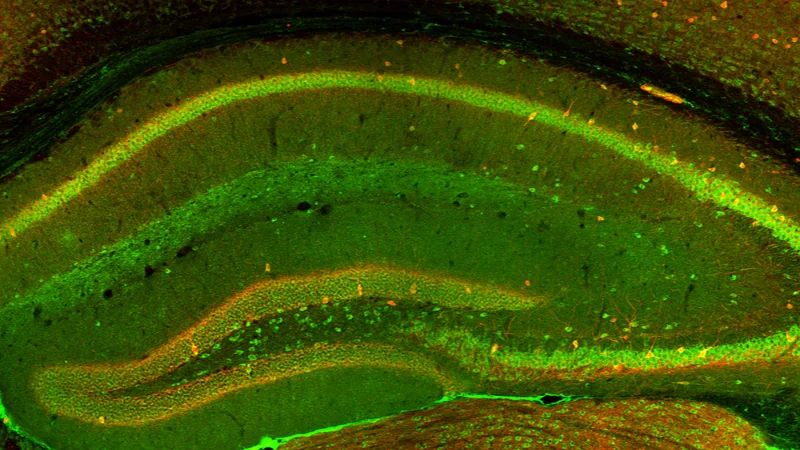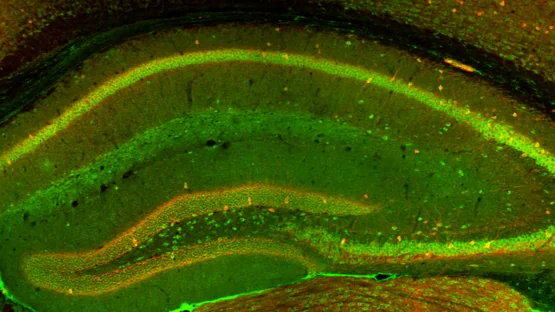Researchers, publishing in the journal Aging, have discovered that a protein called hedgehog alleviates the tissue-specific, age-related inflammation of the microglia, the maintenance cells of the brain.
The aging differences between tissue types
To begin this research, the team first performed a gene expression analysis on four different types of murine macrophages: bone marrow-derived macrophages (BMDMs), peritoneal cavity macrophages, Kupffer cells, and microglia. This analysis discovered which genes were expressed and repressed with aging, attempting to find out which age-related gene changes these cells had in common.
The answer was that there were remarkably few. Each of these four types of macrophages appears to genetically age in its own way; there were only seven genes whose expression changed with age between both sexes and among all macrophages. The researchers tested the pathways involved, with the idea that perhaps different genes were yielding similar results, and they found that even the fundamental pathways between these cell types were different.
Upon stress, old microglia secrete considerably more types of inflammatory factors than old macrophages of other types, and microglia have roughly 200 genes that are upregulated with age and 900 that are downregulated, which is considerably more than any of the other types. The researchers found that a full two-thirds of genes that are specific to microglia are affected by age. They hypothesized that this is due to the microglial environment rather than an inherent aging program.
A root cause and a potential treatment
One commonality between the macrophages was that genes that signal the hedgehog protein (Hh) were reduced. The researchers injected mice with vismodegib, a compound that inhibits Hh, and evaluated the macrophages. The results were striking; seven inflammatory factors dramatically increased, some by more than two orders of magnitude.
This led the researchers to question whether or not they could accomplish the reverse. They treated naturally aged mice with the Hh agonist Hh-Ag1.5. These results were also significant: mice treated with Hh-Ag1.5 were found to express the inflammatory factor tumor necrosis factor (Tnf) at levels nearly that of young mice.
Conclusion
The researchers suggested that the differences between macrophages might be dependent on their distance from the basal stem cells that originally created them. Microglia, for example, self-renew and are rarely created from stem cells, while other macrophages are more frequently created that way. The researchers did not go as far as to determine the fundamental reasons why Hh signaling decreases with age, although they conjectured that this is due to selection within the body.
It must be noted that Hh is a many-edged sword; not only has it been found to increase inflammation in other contexts [1], its oncogenic (cancer-causing) effects can be so profound that the Hh inhibitor used in this experiment is FDA approved to treat cancer [2].
Therefore, as the researchers note, any future treatment focused on increasing Hh in microglia must affect only those cells and only to the degree necessary to reduce inflammation. However, if such a treatment could be developed and brought to market, treating inflammaging in the human brain could possibly have profound effects on multiple causes of cognitive decline.
Literature
[1] Kwon, H., Song, K., Han, C., Chen, W., Wang, Y., Dash, S., Lim, K. and Wu, T. (2016), Inhibition of hedgehog signaling ameliorates hepatic inflammation in mice with nonalcoholic fatty liver disease. Hepatology, 63: 1155-1169. https://doi.org/10.1002/hep.28289
[2] Axelson M, Liu K, Jiang X, He K, Wang J, Zhao H, Kufrin D, Palmby T, Dong Z, Russell AM, Miksinski S, Keegan P, Pazdur R. U.S. Food and Drug Administration approval: vismodegib for recurrent, locally advanced, or metastatic basal cell carcinoma. Clin Cancer Res. 2013; 19:2289–93. https://doi.org/10.1158/1078-0432.CCR-12-1956



